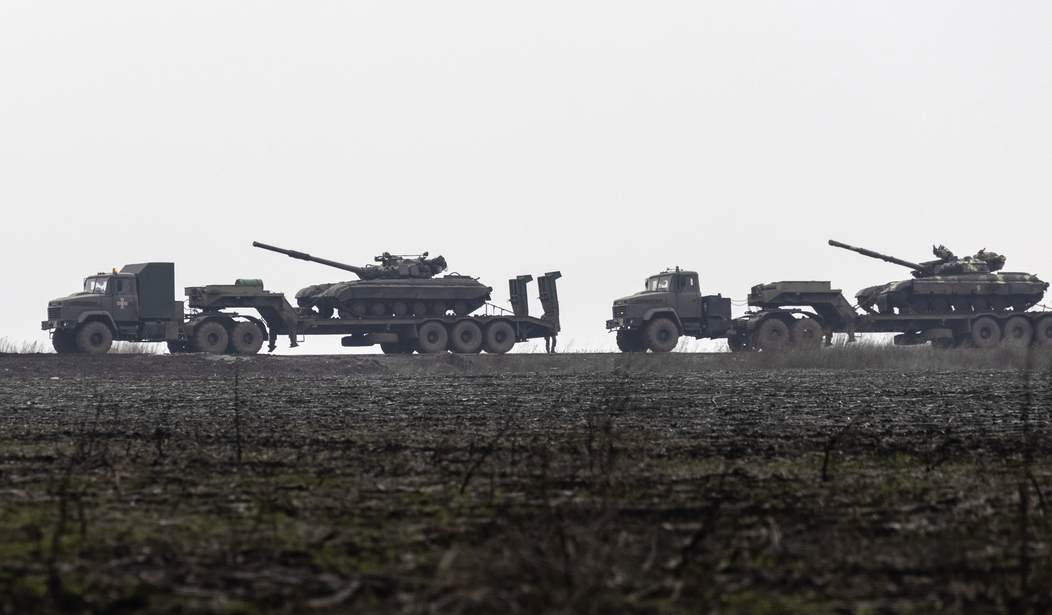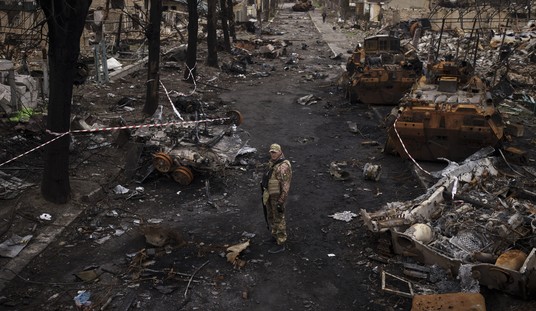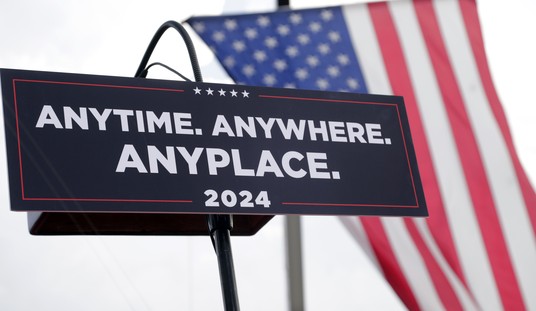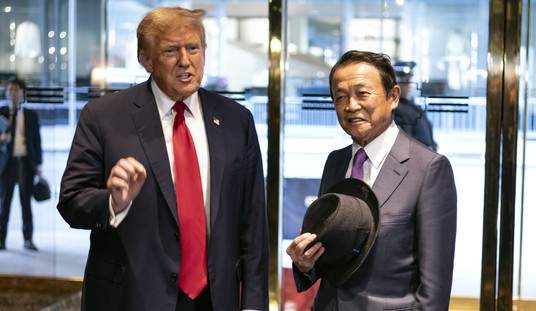The Russian military isn’t as sophisticated as we thought but surely they’d be sophisticated enough to identify which adversary was behind a massive air attack on their forces, no?
Still, I sympathize with Hannity feeling his trigger finger getting itchy when he sees all of Russia’s ducks lined up in a row. And I like the idea of Putin getting a taste of his own medicine, besieged by enemy forces who deny their national affiliation in order to create a patina of plausible deniability. That was how Putin himself deployed Russian troops to Crimea in 2014, dressing them in uniforms without the Russian insignia and having them claim they were native separatists instead of Moscow’s own forces.
All Hannity’s doing is turning the “little green men” strategy around on him.
But even so, I’m taking a hard pass on this idea. As seductive as it is to imagine Russia’s infantry getting what’s coming to it courtesy of NATO’s air assets, not starting World War III is a little more seductive.
Sean Hannity proposes NATO fighter jets bomb Russian convoy “and then nobody takes credit for it, so then Putin won't know who to hit” https://t.co/7jYGYmxMsK pic.twitter.com/CcVUvYglw8
— Brendan Karet (@bad_takes) March 2, 2022
Quin Hillyer floated a similar idea a few days ago. What if the UN rather than the U.S. or NATO sent planes to enforce a no-fly zone over Ukraine?
If Russian dictator Vladimir Putin continues to prosecute his self-chosen war in Ukraine, the United Nations ought to use its Article 42 powers to do a collective military intervention against Russian forces.
It can and should do so after implementing Ukraine’s suggestion to evict Russia from the U.N. Security Council, because the U.N. never officially authorized Russia to take the former Soviet Union’s permanent Security Council seat. Furthermore, as Russia is brazenly violating the U.N. Charter, it could and should be booted from the whole assembly, regardless. Without a veto from Russia, the U.N.’s collective security provisions can be activated and a no-fly zone enforced in order to keep Ukraine from being conquered.
As a collective action of the entire world against Russia’s aggression, it would leave Russia in a bind, unable to blame, or retaliate against, just one or two nations for taking arms against it. And as a purely defensive action that does not threaten Russian territory, but only protects that of the sovereign nation of Ukraine, a no-fly zone and other targeted military assistance for the latter would leave Russia hard-pressed to respond.
Again, I sympathize with the impulse. But my guess is that any entry by international forces into Ukraine, which Putin considers part of Russia, would be treated by the Kremlin as a widening of the war that makes NATO countries fair game for Russian reprisals. That’s also World War III. And with Russia badly outgunned in a conventional conflict that broad, Putin would likely reach for his great equalizer. Russia even has a formal doctrine called “escalate to deescalate” for such a scenario. Put simply, if they’re getting beaten up on the battlefield and in danger of defeat, they start firing off tactical nuclear weapons to force the enemy to back off.
The Defense Department’s 2018 Nuclear Posture Review states: “Moscow threatens and exercises [i.e., rehearses] limited nuclear first use, suggesting a mistaken expectation that coercive nuclear threats or limited first use could paralyze the United States and NATO and thereby end a conflict on terms favorable to Russia. Some in the United States refer to this as Russia’s ‘escalate to deescalate’ doctrine.”
The idea behind “escalate to deescalate” is not at all new or unique to Russia. As Jay Ross, a U.S. Army Reserve nuclear weapons officer, reminds us in an April 2018 article, the strategy’s conceptual underpinnings follow from Cold War nuclear strategist and Harvard professor Thomas Schelling’s seminal books “The Strategy of Conflict” and “Arms and Influence.” Ross writes that “Russia’s approach to conflict is better described as ‘escalation control,’ a concept that was a part of the American strategy lexicon until the end of the Cold War.” Escalation control is the idea that one side of a conflict can determine the level of violence of a conflict—raising it, for example, in a way that discourages the other side from raising it further. This is precisely the goal of “escalate to deescalate” as Work and Winnefeld understood it.
In a world without weapons of mass destruction, we probably would see NATO riding to the rescue in Ukraine right now, hoping to rout the Russian military. Then again, in a world without nuclear weapons, the Soviet Union might still exist and have a border on the Atlantic.
There’s really no way to win a conventional war against a nuclear power whose leader is sufficiently invested in securing a favorable outcome. Putin has bet his national legacy on rebuilding a Russian empire that includes Ukraine. Any outside force, be it NATO, the UN, or “little green men” in the skies, that intervenes and goes about smashing his dream will likely draw a nuclear retort. There’s only one group capable of stopping him short of that because there’s only one group he’s unwilling to nuke. I think.
I’ll say this for Hannity and Hillyer, though. While they’re out on a limb at the moment in urging western intervention on Ukraine’s behalf, they’ll have more company if and when Russia lays siege to Kiev and Ukrainians begin dying en masse in full view of social-media users the world over. It will be hard, even shameful, to resist the urge to rescue them. But nuclear blackmail leaves outsiders with no options.
Here’s the spokesman for the Pentagon announcing today that the U.S. is canceling a planned ICBM test, not wanting to give Putin any pretext for strolling further towards the brink.
Pentagon Press Secretary John Kirby said the Pentagon is putting its test launch of the Minuteman-III ICBM on hold as Russian President Vladimir Putin places nuclear forces on alert amid the Ukraine invasion. pic.twitter.com/g2t75tGmXI
— Newsweek (@Newsweek) March 2, 2022








Join the conversation as a VIP Member